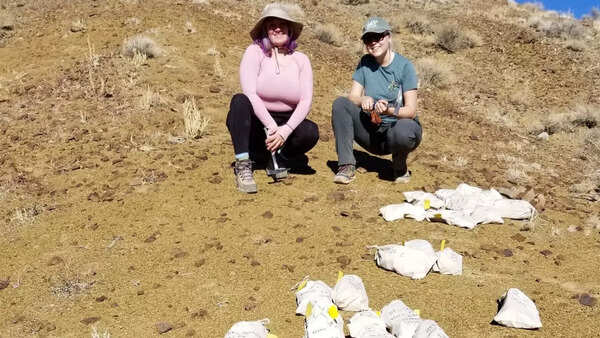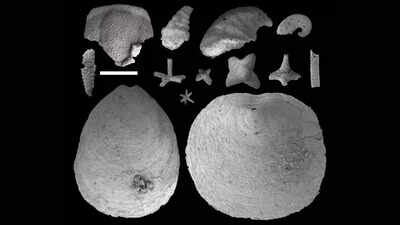In a recent study, researchers studied ancient reefs built by sponge-like creatures called archaeocyathids in Nevada, 514 million years ago. They found that early reefs did not appear to boost biodiversity in the same way as modern coral reefs do. Modern coral reefs are known as biodiversity hotspots, supporting the entire ecosystem and teeming with marine life. Biodiversity patterns around these ancient reef-building organisms shaped their environment, and also examined tiny, fossilized sea creatures called “small shelly fauna”- some of the earliest animals with hard shells ever found on Earth.This discovery provides insight into early ocean life and challenges assumptions about reef ecosystemsoffering a unique perspective on how modern marine systems might evolve.

Source: Univeristy of Missouri
A study of ancient reefs reveals inconsistent patterns of marine life
According to the University of Missourithe team of researchers who led the study of ancient reefs did not find a consistent pattern with these ancient reefs; the pattern was pretty inconsistent and was largely dependent on localized conditions. Casey Bennett, a graduate student in the Department of Geological Sciences and lead author on the study, said, “ With modern reefs, biodiversity is expected to decrease as you move away from the reef structure due to reduced shelter and food access”.The discovery shares a glimpse into how life evolved in early oceans and challenges assumptions about how ecosystems develop around reef structures. It tells that all reefs are not created equally, and understanding their ancient forms could offer insight into how modern marine systems might change.
The role of water in shaping marine life
To conduct the study, the team analysed fossil assemblages across multiple rock formations. Their results show a relatively low-diversity but high-abundance community, with some organisms dominating certain layers, possibly shaped by ancient ocean currents. The team emphasizes the need for continued fieldwork and fossil analysis to piece together how early reef habitats influenced the spread and organization of life in Earth’s oceans.Sarah Jacquet, an assistant professor of paleontologybelieves hydrodynamics, or how water moved around the reef, played a significant role.Also read | Shocking discovery! 230 giant viruses found lurking in Earth’s oceans; scientists say







